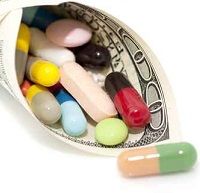Two Drugs Top Global Sales List
Global drug sales will reach nearly $1 trillion by 2020, a new report predicts. In 2014 the top sellers were the rheumatoid arthritis drug Humira and the hepatitis C anti-viral Sovaldi.

For the second year, the rheumatoid arthritis drug adalimumab (Humira/AbbVie) remained the world's top selling pharmaceutical in 2014, according to a new analysis of pharma sales by the Evaluate Group, based in London, UK. Global sales totaled $13.9, followed by the hepatitis C antiviral sofosbuvir (Sovaldi/Gilead) which brought revenues of $10 billion that year. The drug was approved in the US in December, 2013.
Adalimumab is also indicated for psoriatic arthritis, ankylosing spondylitis, and Chrohn’s disease. The US Food and Drug Administration approved its use for rheumatoid arthritis in September, 2014.
Other highlights in the report include predictions that worldwide prescription drug sales will reach $3 trillion by 2020, with a projected annual growth of 4.8% through that year.
The jump in sales was higher in the US at 8.9% than it was in Europe where that rate was 2.4%.
Sales in Japan dropped 2.6%.
Peering into the research and development pipeline, the analysts said Gilead’s potential new combination ledipasvir-sofosbuvir hepatitis C product Harvoni is valued the highest at $24.8 billion. But the total value of drugs in development is an estimated $492.8 billion, up from $4.18.5 billion in 2014.
The report noted that the FDA approved a record 50 new drugs in 2014, products that the report predicted would see a 43% increase in post-launch sales. Of these, Bristol-Myers Squibb’s cancer drug nivolumab, (Opdivo) was the number one approval. It got the FDA nod for lung cancer in March, 2015 and 5 months earlier had been approved for treating advanced melanoma.
Novartis still heads the pack in global sales, the report said, projecting sales of $53.3 billion in 2020. That’s 5.4% of the global market.
But the analysts also warned that the companies will face sales resistance due to the high prices of some of the new drugs. Either they “accept lower prices for products, or persuade payers that the therapeutic benefits outweigh the cost of the disease.”
Hepatitis C drugs have already run into that problem, with physicians saying the high cost is a good value compared to letting the infection run its course—often ending in liver failure or liver cancer and the need for liver transplants.
There have also been institutional pushbacks. In Massachusetts, for instance, the state’s correctional facilities are not offering inmates with hepatitis C access to the newest drugs.
That resistance has led to lawsuits from inmates.